Premium Only Content
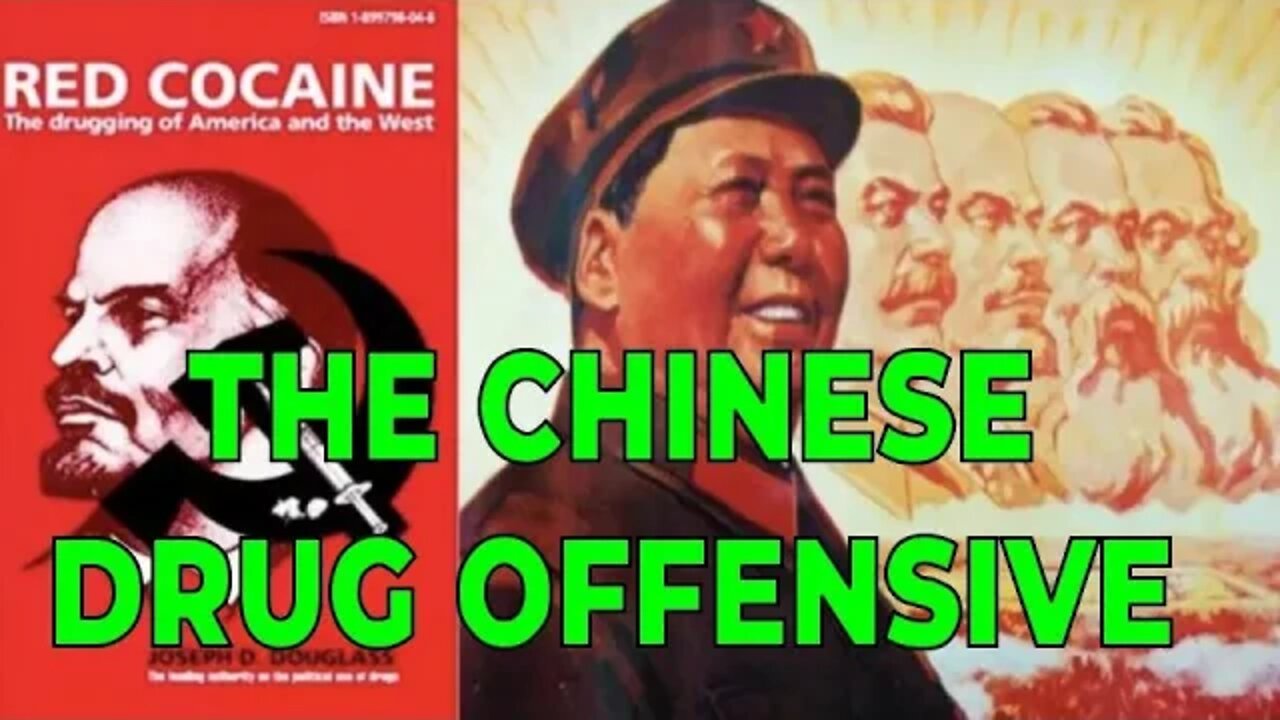
Red Cocaine: The Drugging of America and the West – Joseph D. Douglas – Chapter 1
Chapter 1: China's Drug Offensive
Buy: https://www.amazon.com/Red-Cocaine-Drugging-America-West-dp-1899798048/dp/1899798048
Publisher: Edward Harle Limited; 2nd edition (June 1, 1999)
Please support the creation of important audio books and articles via:
Paypal: paypal.me/mario1337
Bitcoin: 35iDtUzZq33CoJhmK38TdV9Xunvs7TKmzX
Ethereum: 0xf396A0e10911b4BC975CfE80117412D484B24d1e
I found a way to produce books in a decent quality automatically a lot faster, but the web service produces costs while layout and creation of the videos use up a lot of time. Thank you!!
The book shows how international communism has used opium and cocain as a powerful weapon against the West. Dr. Ray S. Cline, Ph.D., a former Deputy Director for Intelligence for the CIA, said: "A powerful and well-documented case of a deliberate policy decision, first by authorities in Beijing and then in Moscow, to contribute to the decay of American society."
References to Chapter 1:
1 Chang Tse-min, A Follow-Up Report on Chinese Communist Crimes in Drugging the World (Taipei: World Anti-Communist League, 1979), page 1.
Ibid., page 1; and A. H. Stanton Candlin, Psycho-Chemical Warfare: The Chinese Communist Drug Offensive Against the West (New Rochelle, New York: Arlington House, 1973), page 73.
2 'A Look at the Chinese Communist 'Strategy of Narcotic', unpublished paper by Maj. Gen. (Ret.), Sing-yu Chu, Society for Strategic Studies, Taipei. Cited in The Inside Story of Red China's Opium Sales (Taiwan: Hsueh Hai Press, May 1957).
3. Before and during the Korean War, North Korea was closely connected to Communist China. However, after the war, relations with China soured and North Korea became more closely aligned with the Soviet Union. North Korea provided Soviet intelligence with considerable data on the Chinese drug business.
4. See testimony of a Bureau of Narcotics, Treasury Department undercover agent in US Congress, Senate, Communist China and Illicit Narcotics Traffic, Hearings Before the Subcommittee to Investigate the Administration of the Internal Security Act and other Internal Security Laws of the Committee on the Judiciary, March 8,18-19, and May 13,1955 (Washington, D.C.: US Government Printing Office, 1955), pages 14-17.
5. J. H. Turnbull, Chinese Opium Narcotics: A Threat to the Survival of the West (Richmond, Surrey, England: Foreign Affairs Publishing Company, 1972), page 12.
6. See Harry J. Anslinger and William F. Tompkins, The Traffic in Narcotics (New York: Funk & Wag-nails Company, 1953), pages 70-116, and Gerd Hamburger, The Peking Bomb (Washington: Robert B. Luce, Inc., 1975), page 54. See also Richard Deacon, The Chinese Secret Service (New York: Ballantine Books, 1974), pages 449-450.
7. US Congress, Senate, Communist China and Illicit Narcotics Traffic, Hearings Before the Sub-committee to Investigate the Administration of the Internal Security Act and Other Internal Security Laws of the Committee on the Judiciary, March 8,18,1955, May 13,1955, and March 19,1955 (Washington, D.C.: Government Printing Office; 1955), pages 34-91.
8. Victor Lasky, 'Red China's Secret Weapon', in Extension of Remarks of Hon. Norris Poulson, US Congress, House, Congressional Record- Appendix (Washington, D.C.: US Government Printing Office, April 23,1953), page A2176.
9. See Candlin, Psycho-Chemical Warfare: The Chinese Communist Drug Offensive Against the West, op. cit., pages 108-118; Hamburger, The Peking Bomb, op. cit., page 235; and Communist China and Illicit Narcotics Traffic, op. cit, page 16.
Deacon, The Chinese Secret Service, op. cit, page 447, reports using as many as 37 separate reports from 26 individuals whom Deacon believed had interviewed as many as 50 to 60 defectors, police officers, secret agents, drug squad officers.
10. For extensive details and maps of production areas and trafficking routes, see Psycho-Chemical Warfare: The Chinese Communist Drug Offensive Against the West, op. cit, The Peking Bomb, op. cit, and various reports to the United Nations filed by the US Commissioner on Narcotics.
11. Candlin, Psycho-Chemical Warfare: The Chinese Communist Drug Offensive Against the West, op. cit, page 195; and Hamburger, The Peking Bomb, op. cit, page 59.
12. Tokyo Shinbun, January 8,1953, cited in Richard L. G. Deverall, Mao Tse-tung: Stop This Dirty Opium Business! (Tokyo: Toyoh Printing and Bookbinding Co., 1954), pages 64-66. See also Candlin, Psy-cho-Chemical Warfare: The Chinese Communist Drug Offensive Against the West, op. cit, pages 195-197,454-455.
13. Candlin, Psycho-Chemical Warfare: The Chinese Communist Drug Offensive Against the West, op. cit, page 214.
14. Ibid., pages 215-216.
15. Interview with Jan Sejna who was present when Suslov discussed China's narcotics trafficking in detail. This data had been derived from Soviet intelligence.
16. Turnbull, Chinese Opium Narcotics, op. cit, page 15.
17. Ibid., page 15.
18. Ibid.
19. Ibid., page 16.
#drugs #china #communism
-
 25:17
25:17
Eugen Richter Audiobooks
2 years agoStalins Secret Agents – Evans & Romerstein – Chapter 10: The War Within the War
1.83K3 -
 LIVE
LIVE
BooniesHQ
2 hours agoGame Of SKATE Shaun Hover Vs. Jeff DeChesare: Boonies Skate Night 1
2,691 watching -
 LIVE
LIVE
SpartakusLIVE
2 hours agoThe HUGEST Brain (not forehead) delivers Saturday SPARTOONS || Variety Later - Shadow of Mordor
12,842 watching -
 LIVE
LIVE
Exploring With Nug
21 hours agoMassive Thunderstorm Hits During Search for Missing Georgia Woman!
130 watching -
![Devin Nunes - Devin Nunes Reveals The Document The [DS] Was Looking For Was Hidden,Truth Is Coming](https://1a-1791.com/video/fww1/20/s8/1/-/e/L/d/-eLdz.0kob-small-Devin-Nunes-Devin-Nunes-Rev.jpg) 1:17:44
1:17:44
X22 Report
6 hours agoDevin Nunes - Devin Nunes Reveals The Document The [DS] Was Looking For Was Hidden,Truth Is Coming
56.6K70 -
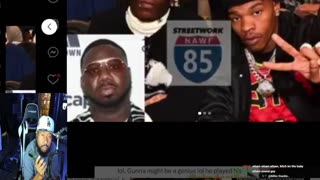 4:13:38
4:13:38
Akademiks
4 hours agoWar in RAT-LANTA. Young Thug vs Gunna vs Ralo vs YSL MONDO. Who Will Le Bebe Pick. FINAL CRASHOUT!
128K4 -
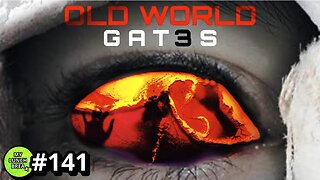 21:55
21:55
MYLUNCHBREAK CHANNEL PAGE
1 day agoFault Lines are GATES - Pt 3
13.7K6 -
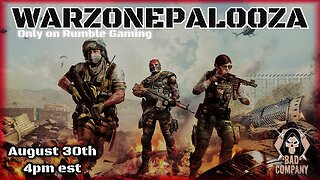 DVR
DVR
Sgt Wilky Plays
3 hours agoRumble Gaming Bad Company Presents WARZONEPALOOZA
8.22K -
 LIVE
LIVE
Rallied
2 hours ago $0.69 earnedSolo Challenges ALL DAY
97 watching -
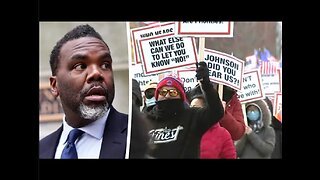 17:54
17:54
Nate The Lawyer
6 hours ago $1.88 earnedChicago Mayor’s $600M Migrant Spending Leaves City $1.1B Budget CRISIS.
13.1K25